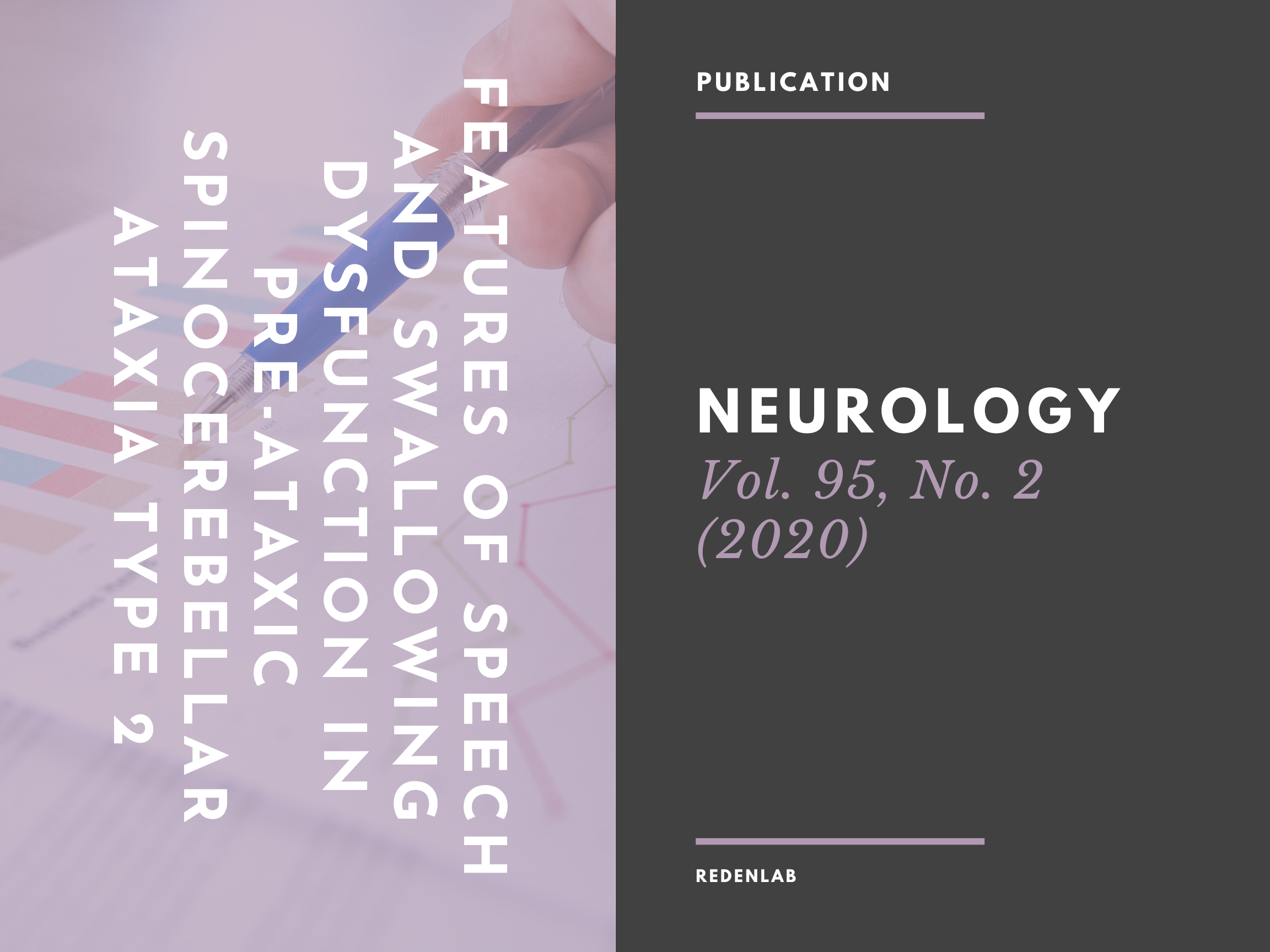Features of speech and swallowing dysfunction in pre-ataxic spinocerebellar ataxia type 2

Speech and swallowing deficits appear sensitive to disease progression in early-stage SCA2, with syllabic rate a viable marker. Findings provide insight into mechanisms of disease progression in early-stage SCA2, signaling an opportunity for stratifying early-stage SCA2 and identifying salient markers of disease onset as well as outcome measures in future early-stage therapeutic studies.
Methods Forty-six individuals (16 with pre-ataxic SCA2, 14 with early-stage ataxic SCA2, and 16 healthy controls) were recruited in Holguin, Cuba. All participants underwent a comprehensive battery of assessments including objective acoustic analysis, clinician-derived ratings of speech function and swallowing, and quality of life assessments of swallowing.
Results Reduced speech agility manifest at the pre-ataxic stage was observed during diadochokinetic tasks, with the magnitude of speech deficit augmented in the early ataxic stage. Speech rate was slower in early-stage ataxic SCA2 compared with pre-ataxic SCA2 and healthy controls. Reduced speech agility and speech rate correlated with disease severity and time to ataxia onset, verifying that speech deficits occur prior to ataxia onset and increase in severity as the disease progresses. Whereas dysphagia was observed in both pre-ataxic and ataxic SCA2, it was not associated with swallowing-related quality of life, disease severity, or time to ataxia onset.
Click here for more details
